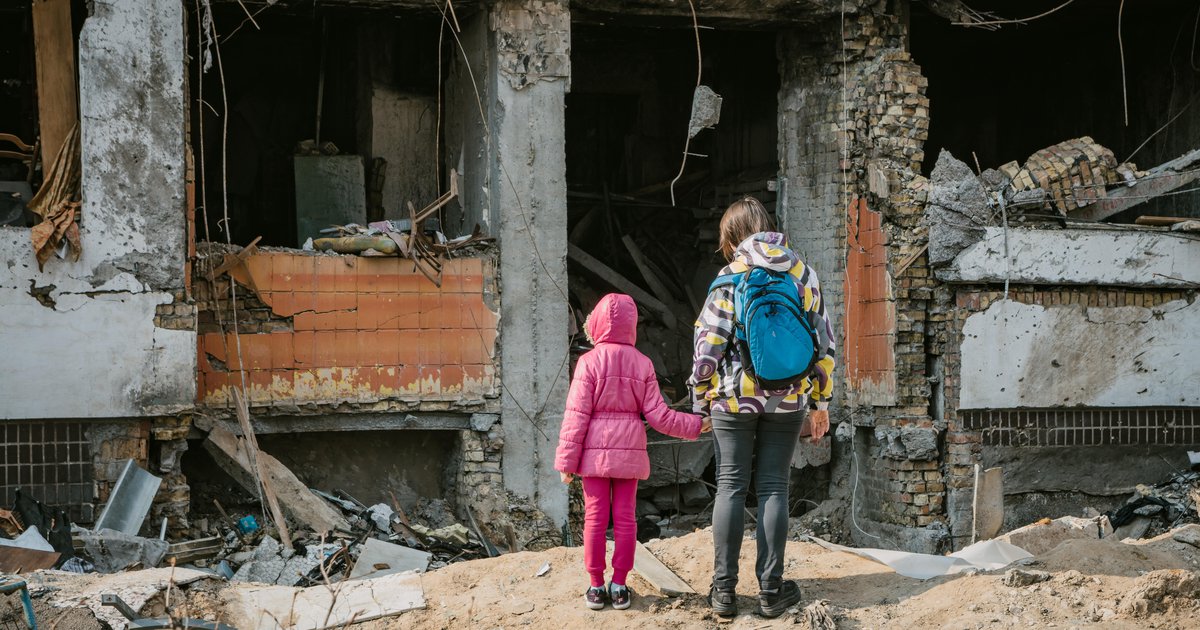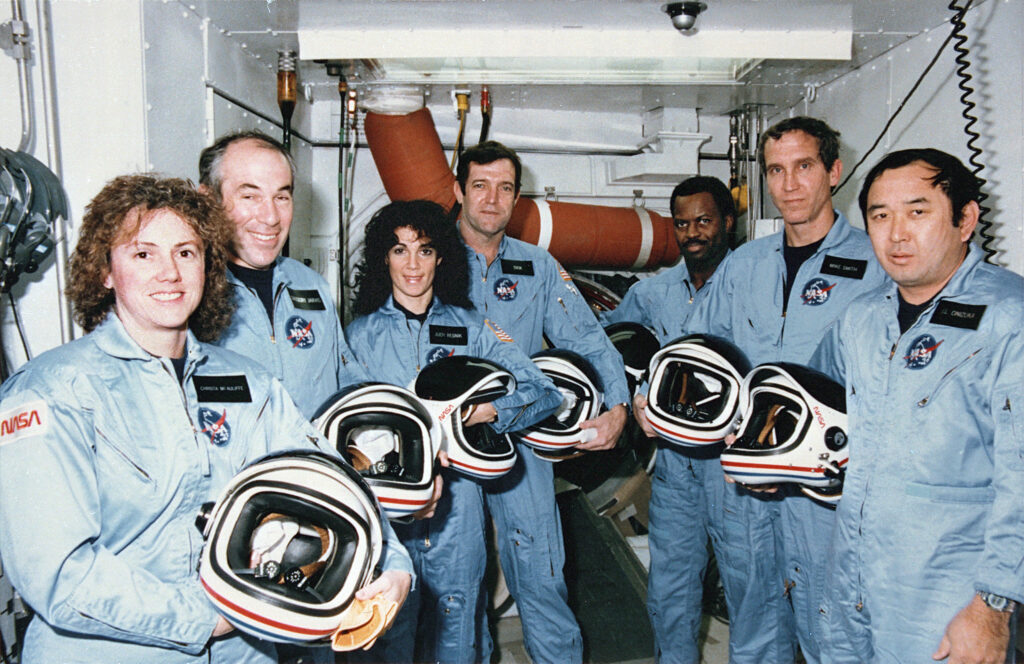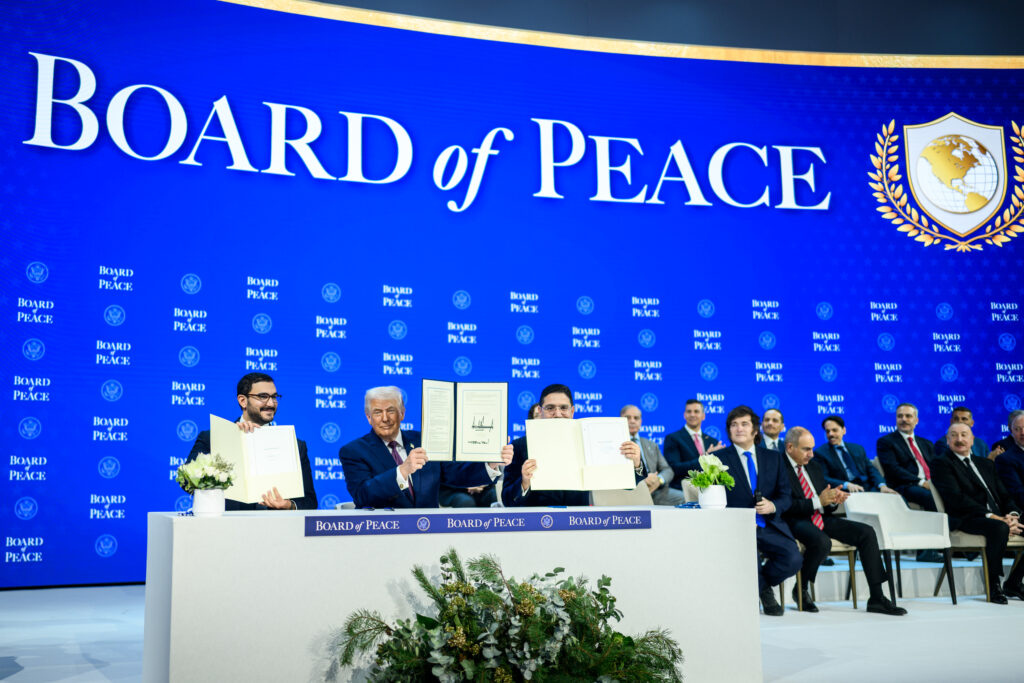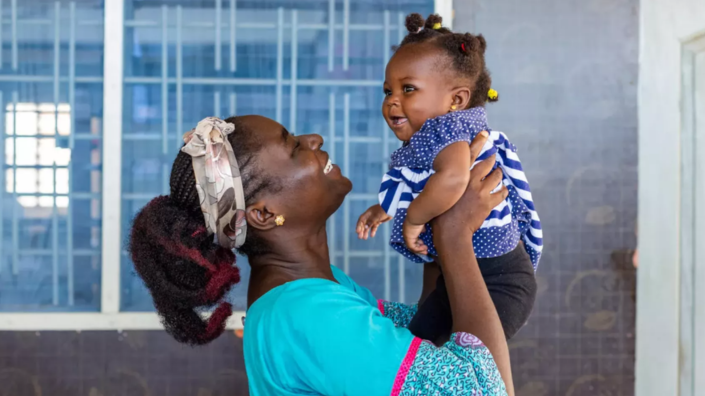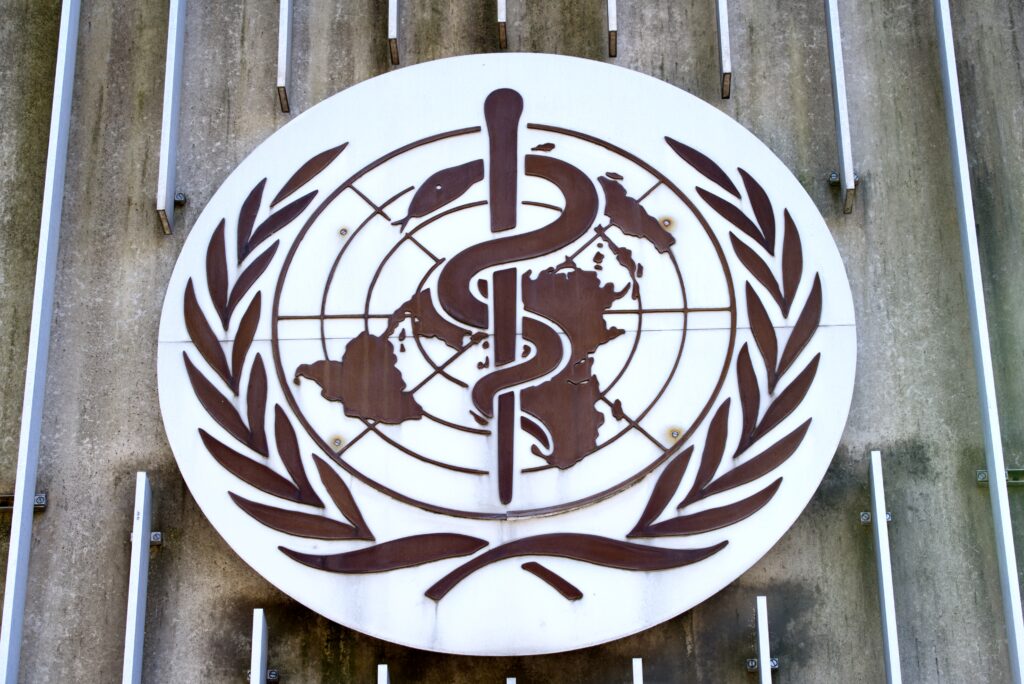As we mark the three-year anniversary of Russia’s war against Ukraine, we revisited an interview with our own BWC Executive Director, who spoke with us following his visit to the region last year. Amid scenes of destruction, Jordie Hannum shared a much more nuanced picture of a nation determined to rebuild – and the U.S. support essential to their efforts.
Here’s what Jordie had to say.
Originally published on February 24, 2024
Q: First, welcome back. Our team watched news of missile strikes, knowing you were right there in the bunkers. What was your overall impression of the country?
In a word: resilient.
On Feb. 7, I spent a morning in a bunker after Russia launched a nationwide missile attack. I realized that the terror I felt at 5:15 am when my “Air Alert” app announced that missiles were heading our way was temporary. For many Ukrainians, however, especially those on the frontlines, their fear never goes away. People across the country face regular missile, rocket and drone strikes that specifically target civilian infrastructure, including hospitals, maternity wards, single family homes and apartment buildings.
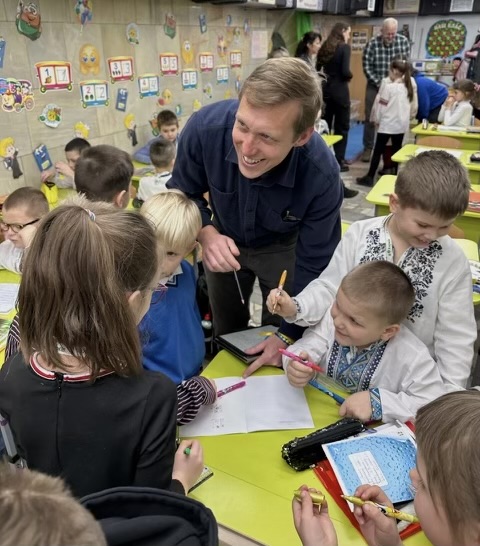
Over five days in Ukraine – as part of a delegation of former U.S. government officials brought together by the UN Refugee Agency (UNHCR) – we traveled more than 1,300 miles to visit areas under attack and meet with civilians and local officials affected by the war. Through it all, Ukrainians not only remain unbowed, but repeatedly testified to their “unbreakable spirit.” We saw that firsthand as they worked with UN personnel to quickly repair homes and buildings following Russian attacks or in the ingenuity it took to create the world’s first “subway school” to help kids continue their education. Today, more than 2,100 children have been enrolled in 27 such underground schools.
“Our delegation came away astounded by their resilience and resolve.”
Jordie Hannum
Q: With countless conflicts around the globe, why is Ukraine so strategically important?
Let me quote a fellow delegation member, Max Boot. The Washington Post columnist and senior fellow at the Council on Foreign Relations wrote, “A Russian victory in Ukraine would not only endanger U.S. allies in Eastern Europe, but also send a dangerous signal to aggressors, such as North Korea and China, that the West lacks the resolve to counter their designs. If, on the other hand, the United States continues to provide Ukraine with the support it needs, Putin could eventually be confronted with the reality that this is a war he cannot win and needs to end. U.S. security and deterrence would be strengthened immensely by a Russian defeat.”
Q: There are so many organizations and agencies deployed in times of crisis, which can create its own kind of disorder. How does the U.S. work with the UN, non-governmental organizations (NGO) and local groups to provide humanitarian assistance?
It’s a good question. It’s important to know that, in general, when crises arise, there is a playbook built around “clusters.” The humanitarian cluster system is a coordination mechanism used by the UN and other organizations to respond to emergencies and is designed to organize humanitarian providers into core sectors, such as water, health and food. The aim is to improve the efficiency and effectiveness of response, avoid duplication and ensure that people’s needs are met in a timely manner.
In Kyiv, just two days after the Feb. 7 missile strikes, our delegation visited an 18-story residential building that was home to roughly 450 people. During the attack, four individuals were killed and nearly every apartment unit had been damaged or destroyed. It took only hours for UNHCR and USAID to get to the scene and just 24 hours for the organizations to work together to establish stations for food aid, legal support, psychosocial resources and housing assistance – from providing alternative housing to building supplies. Within three days, every person who came in for help had received it. Importantly, these services are always done in close conjunction with local providers; in fact, 16 out of 20 UNHCR Ukraine partners are national organizations. These local groups are often unable to operate at scale without direct UN assistance and U.S. financial support, so they work together.
This is also true for UN-based humanitarian assistance worldwide. There’s a misconception that the UN crowds out local organizations. In fact, the UN supports “localization” and works hand-in-hand with domestic service providers. The World Food Programme (WFP), for example, partners with around 1,000 non-governmental organizations (NGOs) around the globe.
Q: Is there a single moment that stands out during your visit that really brought home the value of UN engagement in the region?
The director-general of the International Atomic Energy Agency (IAEA) – the UN’s nuclear watchdog agency – happened to be in Ukraine while we were in the country. Rafael Grossi was visiting a power plant in the southeastern city of Zaporizhzhia that’s been called the “Most Dangerous Place in the World.” It’s Europe’s largest nuclear plant and is located close to the frontline of Russian and Ukrainian forces. UN inspectors have pledged a “permanent presence” at the site, deploying teams of monitors to ensure the safety and security of it and other plants throughout Ukraine. A meltdown at any of these reactors would have catastrophic consequences for millions of people in the country and worldwide. There is simply no other agency that would have received permission to operate between these two warring parties. The IAEA has unique legitimacy and expertise and their efforts in Ukraine matter to every single one of us.
Q: When we talk about foreign assistance, particularly funding the work of the UN, there seem to be two very distinct conversations: military assets on the one hand and humanitarian support on the other. Is it wise to treat these topics separately?
It’s absolutely not wise, and our Ukrainian friends made it clear why.
In meetings with Ukrainian government officials and military leaders, they emphasized that ultimate success on the battlefield comes from the will of the people, and specifically cited humanitarian assistance as integral to their nation’s defense. They stated that “the priority is the people,” which makes perfect sense. If your own citizens cannot get shelter when their home is destroyed, if they cannot get food when supplies dwindle, if they cannot get their pension because they no longer have an ID, then their resolve will weaken.
The UN plays an essential role on all these fronts and during a war – that’s just as important as military hardware. Put another way, as noted by delegation member Richard Fontaine, CEO of the Center for a New American Security, “War is a battle of wills. If you want to break Ukraine faster than Putin ever could, cut humanitarian aid.”
War is a battle of wills. If you want to break Ukraine faster than Putin ever could, cut humanitarian aid.
Richard Fontaine
Q: What is the level of need right now, are other countries stepping up, and what are the next steps here in the U.S.?
According to UNHCR, there are almost 15 million people in need this year. Last year, the agency reached more than 2.6 million, with almost 900,000 people receiving cash assistance and more than 22,000 durable house repairs.
These efforts are shared among countries and Europe is doing its part, including by hosting more than 90% of refugees. The EU also just reached an agreement on a 50 billion euro aid package for Ukraine. That means that European countries are now giving $3 for $1 that the U.S. provides. Now the U.S. Congress must do its part and support a national security emergency supplemental that includes military and humanitarian assistance. Stabilizing displaced populations, enabling returns and building opportunities within Ukraine is part and parcel of the overall military strategy.
Q: Do you have any final thoughts from your time there?
I’ll end how I started: on resilience.
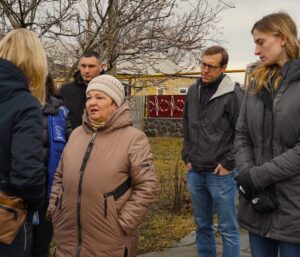 Vysokopillia is a city in the Kherson region that was occupied by Russian forces in March 2022. While traveling there, we spoke with 74-year-old Tamila Pyhyda. During the occupation, Tamila initially remained in her home with her husband and grandson. After a number of threats by Russian combatants, she fled with her grandson to Poland, leaving her husband to stay and protect their property. Tragically, he was killed during what was the fifth shelling that hit their house. After Ukraine retook the region in the fall of 2022, Tamila returned. Today, she lives alone in her rebuilt home thanks to help from UNHCR and partners.
Vysokopillia is a city in the Kherson region that was occupied by Russian forces in March 2022. While traveling there, we spoke with 74-year-old Tamila Pyhyda. During the occupation, Tamila initially remained in her home with her husband and grandson. After a number of threats by Russian combatants, she fled with her grandson to Poland, leaving her husband to stay and protect their property. Tragically, he was killed during what was the fifth shelling that hit their house. After Ukraine retook the region in the fall of 2022, Tamila returned. Today, she lives alone in her rebuilt home thanks to help from UNHCR and partners.
Hoping for the day when her daughter and grandson return, Tamila said, “It was impossible for us to stay here [after the occupation]. There was no gas, no water, no electricity, and it was cold. This year, my husband and I were supposed to celebrate our 50th wedding anniversary, but it was not to be. When the area was retaken, I came back, because home is home. So now I am alone, trying to piece my life together and get back to normality. I am grateful to all the people who are concerned for our country. Please don’t forget about us.”
It is now our job in the U.S. to honor her plea.
I am grateful to all the people who are concerned for our country. Please don’t forget about us.
Tamila Pyhyda
Jordie Hannum is the Executive Director of the Better World Campaign
